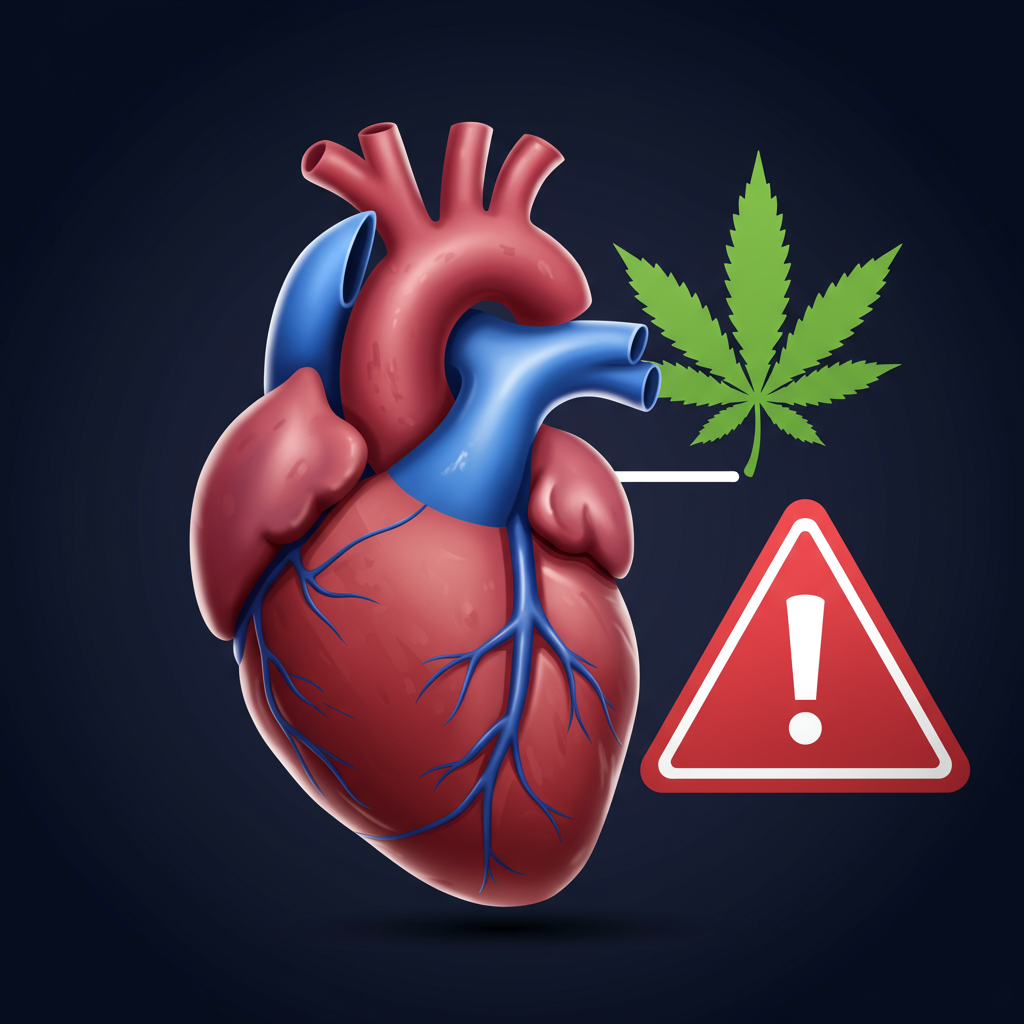New Research Links Cannabis Use to Significant Heart Risks
A major new study analyzing data from millions of people suggests that cannabis users face significantly increased risks of serious heart problems and may be twice as likely to die specifically from heart disease compared to individuals who do not use cannabis.
The findings add to a growing body of evidence challenging the perception that cannabis use carries little or no cardiovascular risk, particularly as its use becomes more widespread and potent.
The Landmark Meta-Analysis Findings
The comprehensive review and meta-analysis, published in the journal Heart, pooled data from 24 large observational studies conducted between 2016 and 2023. This vast dataset included information on approximately 200 million individuals, primarily aged 19 to 59, with frequent cannabis use often noted as more common among males and younger people in the included studies.
The analysis revealed striking associations between cannabis use and cardiovascular events:
A 29% higher risk of acute coronary syndrome (conditions like a heart attack)
A 20% higher risk of stroke
A stark doubling of the risk of death specifically from cardiovascular disease
Researchers behind this global review cautioned that their findings “raise serious questions about the assumption that cannabis imposes little cardiovascular risk,” especially given the significant rise in cannabis consumption over the past decade.
Context: Increasing Use and Shifting Perceptions
These findings emerge amidst increasing cannabis use worldwide, with recent reports suggesting daily marijuana users in the U.S. may now outnumber daily alcohol drinkers, particularly among younger demographics.
Health experts note that this rise in usage has unfortunately coincided with a decline in the public’s perception of potential health risks associated with marijuana. This shift makes research like the Heart meta-analysis increasingly vital for public health awareness.
Supporting Evidence: The CAD Link
This new meta-analysis aligns with and strengthens findings from other recent research. For instance, a 2023 report highlighted by the American College of Cardiology found that individuals who use marijuana daily, whether smoking or consuming edibles, were approximately a third more likely to develop coronary artery disease (CAD).
CAD, the most common form of heart disease, involves the narrowing of heart arteries by cholesterol plaque, leading to symptoms like chest pain, shortness of breath, and fatigue.
A key takeaway from that research was the persistence of this heightened risk regardless of whether users smoked tobacco, drank alcohol, had other major cardiovascular risk factors, or differed in age or sex. Furthermore, the method of cannabis consumption – smoking, eating edibles, or other forms – appeared to make no difference to this increased CAD risk, according to that study. Dr. Ishan Paranjpe, lead author of the Stanford University study contributing to the ACC report, noted a clear dose-response relationship, where more frequent use correlated with higher CAD risk.
What Experts Are Saying
Experts reviewing these findings are calling for greater awareness and caution. Commentaries accompanying the Heart meta-analysis echoed concerns, stating the results challenge the widely held assumption that cannabis carries little cardiovascular risk.
Some health professionals suggest cannabis risks warrant being treated seriously, similar to how tobacco risks are viewed – advocating for public education, warnings, and protection from secondhand exposure, rather than criminalization. Robert Page II, who chaired a 2020 American Heart Association report on cannabis and heart health, noted that this meta-analysis validates prior studies, emphasizing that cannabis should be considered a potential risk factor for premature atherosclerotic cardiovascular disease (ASCVD). He drew a parallel to the historical delay in recognizing the devastating cardiovascular effects of cigarette smoking, urging caution against ignoring these signals regarding cannabis.
Experts also highlighted the need for further research to clarify if risks differ based on consumption method (smoking vs. edibles), the impact of increasing cannabis potency, and the role of specific components like cannabinoids versus other inhaled substances. Frequency and dosage are also considered crucial factors influencing risk.
Limitations and Future Research
While the meta-analysis offers powerful pooled data from a large population, the researchers acknowledged limitations, including the observational nature of most included studies and potential variability in measuring cannabis exposure or dosage used by participants.
A key area for future research highlighted by the authors and commentators is precisely how different forms of cannabis consumption (smoking, vaping, edibles, etc.) might influence these cardiovascular risks. The Heart* meta-analysis, for example, did not always differentiate the method of exposure. Smoking cannabis, regardless of the active compounds, carries the separate risk of inhaling irritants and carcinogens similar to tobacco smoke, which could contribute to cardiovascular issues.
Conclusion and Recommendation
In light of the growing body of evidence, including these recent large-scale analyses, health professionals are increasingly viewing cannabis use as a potential risk factor for cardiovascular disease.
Given the identified associations with increased risks of heart attack, stroke, and death from heart disease, individuals – particularly those with pre-existing heart conditions or risk factors – are advised to consider avoiding cannabis use, especially smoking.
Ultimately, experts strongly recommend that anyone using cannabis, whether for medical or recreational purposes, discusses this with their doctor. Open communication allows healthcare providers to monitor heart health and offer informed guidance based on individual circumstances and risk factors. Being fully informed about the potential health implications and drug interactions is crucial for making personal health decisions.




